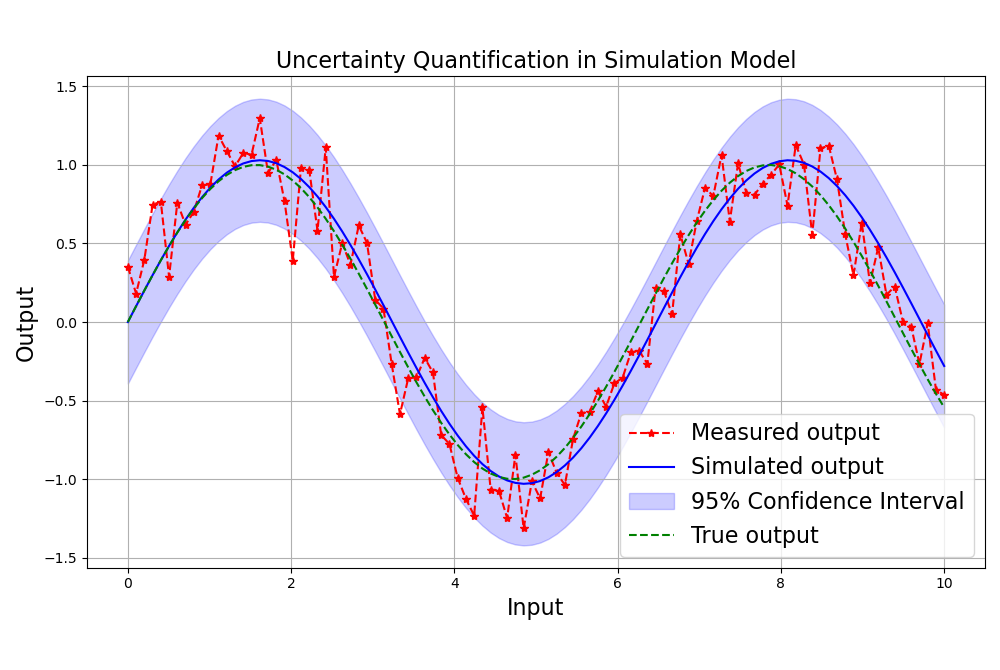
Uncertainty predicted for simulation models quantified with increased accuracy.
Source: BAM
In a significant advancement for chemical engineering and data science, researchers have developed a new method to more accurately estimate uncertainty in nonlinear regression models – tools widely used to simulate real-world chemical processes. Traditional approaches, such as linear approximations or Monte Carlo simulations, often fall short: they are either too simplistic or computationally expensive.
The new approach, developed by a team from Fraunhofer ITWM, TU Berlin, and BAM, leverages advanced mathematical techniques known as cubature formulas. These methods, which generalize numerical integration to higher dimensions, allow for precise and efficient estimation of prediction uncertainty – even in complex, nonlinear systems.
The researchers tested their method on both theoretical models and real-world applications, including the widely used NRTL model for chemical mixtures. Their findings show that cubature-based estimators outperform conventional techniques in both accuracy and robustness, particularly when data is limited or models are highly nonlinear.
While the method requires more computational effort than simpler alternatives, its reliability makes it a promising tool for engineers and scientists working in fields where predictive accuracy is critical. The study also highlights the importance of experimental design, showing that how data is collected can significantly influence the quality of uncertainty estimates.
This work marks a step forward in making model-based decision-support more trustworthy and transparent – an essential goal in an era increasingly shaped by data-driven technologies.
Cubature-based uncertainty estimation for nonlinear regression models
Martin Bubel, Jochen Schmid, Maximilian Carmesin, Volodymyr Kozachynskyi, Erik Esche, Michael Bortz
Computers & Chemical Engineering, Volume 197, June 2025


